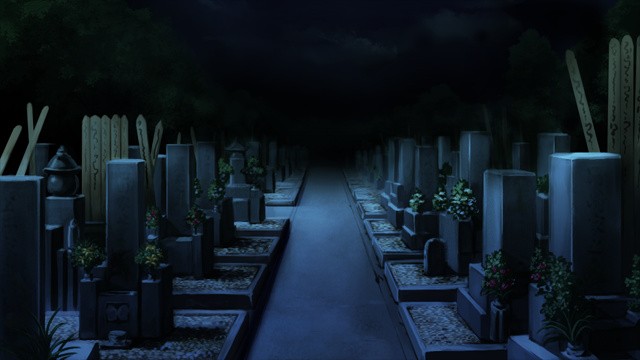Do you know what Kimodameshi (肝試し) is? Kimo (肝) means liver and dameshi (試し) means "test". However, it is commonly known as the “Test of Courage”. In Japan, the liver in this case can refer to the phrase “Kimo ga Suwaru”, which would be something like, demonstrate your courage or show yourself brave.
Kimodameshi can be considered a child's play, but in fact, adults also play and even feel scared like their children or nearby kids; it is usually done during the summer, at the Obon festival, in August. The date can be considered special for the test, as it is said that during the festival, the dead or spirits return to this world to visit their relatives and loved ones.
It's very simple to play Kimodameshi. Participants throw a challenge, typically visiting abandoned places rumored to have sightings of ghosts, among other paranormal events, and the one who stays the longest at the location wins.
Normally in animes, characters play kimodameshi to bring couples together, that is, characters go in pairs, so who knows a romance might arise.

Table of Content
Where did Kimodameshi come from?
Kimodameshi, like almost all Japanese legends and practices, does not have a certain origin, but there are two stories that can give an idea of where it came from.
The first is that it would have emerged at the end of the Heian period, during the reign of Emperor Shirakawa (1073-1087) due to a book called “O-kagami” (大鏡; “Great mirror”), written by an unknown author.
The book tells the story of the three sons of Fujiwara Kaneie. In the story, the 3 sons challenge each other to see who has more courage to go to a nearby house, known for being the house of an Oni (demon). The story states that 3 o'clock in the morning is the time when spiritual portals open and various demons and ghosts appear.
It is not known whether it is a legend or a true story, but it is said that it may have been created by the samurai as a way to train their children against fear. The samurai of the Edo period also enjoyed telling real horror stories; the game was known as "The 100 Ghost Stories" (百物語怪談会 - Hyaku monogatari kaidankai).

How do you play Kimodameshi?
There are no rules in Kimodameshi, but of course they can be imposed before starting, the way of playing varies from region to region, of course the objective will always be to give a good scare, the game can be set up, where a group of friends get together to challenge each other or it could be a school or family event, with rules and lots of participants.
Normally, the first contact that the japoneses have with the Kimodameshi is at camps or school events. At these school events, it is common for teachers and volunteers to dress up in monster and ghost costumes and hide in strategic places; objects can also be used, such as skulls and the like.
In the original, the kids gather in places like cemeteries, santuários, tunnels, abandoned and haunted houses, parks or buildings, with the challenge done in pairs or individually. They go at night to the marked location, so that everyone feels scared; the owner of the game usually leaves objects scattered in these places, and your objective will be to pick up the objects as proof that you passed through the place.
Japanese haunted house
Kimodameshi is very similar to the haunted houses of amusement parks. Something common both in the West and in the East, these houses present in the parks are also places for couples to meet and for possible romantic scenes.
In fact these tests of courage can be done in places like abandoned houses and buildings. Before these events take place, there is always a scary story about the place.
You could get arrested if you don't play right
The teachers and students responsible for the event usually do things right. But if the event is invading someone else's land, it can cause legal problems.
If you get lost and invade any restricted area, you don't need to take responsibility, but if you're given a warning and you don't leave the location, you could end up being fined up to 100,000 yen or being imprisoned for 3 years.
Care must be taken not to spray or paint someone else's property, or to play too much and cause physical harm to others. The Japanese penal code is quite serious and does not accept bardeneiras like some countries.
